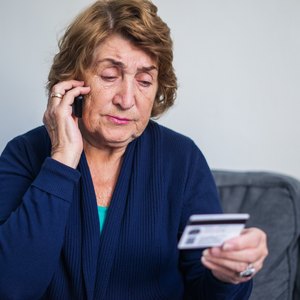
If you’ve been the victim of credit card fraud, the good news is that your bank can’t stick you with the bill. As long as you catch and report the fraudulent charges promptly, you’ll be responsible for little, if any, of the financial damage. Even if you delay, you shouldn't be liable for credit card charges beyond a token amount. If the fraudulent use came from a debit card, however, you may be out of luck if you don't notice it in time.
Understanding Limited Liability
Under the Fair Credit Billing Act, your liability for unauthorized credit card charges is capped at $50 – and it might even be less. If you catch the card missing and report its loss before the card is used, you won’t owe anything at all, even if charges subsequently go through. Similarly, if your credit card number and information are stolen rather than the card itself, such as if you’re the victim of hackers who breached the account of a merchant you’ve shopped at online, you’re also not liable for any charges. Some banks will waive even that $50 of liability for fraudulent use.
Debit Card Risks
The rules are different for debit card fraud, however, and more is expected from you as the victim. If your debit card were stolen and used fraudulently, your maximum loss is limited to $50 only if you report it within the first two business days after you notice it missing. Usually, that’s determined by when you received the bank statement detailing the unauthorized charges. Liability then increases to $500 for amounts charged through 60 days. If you wait longer than that, your liability is unlimited, and your accounts could be completely drained.
Early Action is Critical
As soon as you notice your card is missing, or when you see unauthorized charges on your statement, contact your bank immediately. An initial contact by phone can freeze your account right away and make sure no further unauthorized charges go through. Follow up with a written letter confirming the card’s fraudulent use, noting that you’ve also reported it via phone and detailing the name of the person you talked to and what was said. The FTC recommends that you send this letter via certified mail to confirm its receipt by the card issuer.
Proving Your Case
In some cases, your bank may want evidence that the charges were fraudulent. For example, if your brother or a close friend purloins your card and uses it at some of your usual haunts before you catch him, your bank may be worried that you’re simply trying to escape a legitimate debt. In that case, it may ask you to file a report with the police indicating that the card was stolen, and then it may file fraud charges on its own behalf against the person you accuse.
References
- Federal Trade Commission: Lost or Stolen Credit, ATM and Debit Cards
- Federal Trade Commission: Disputing Credit Card Charges
- Consumer Financial Protection Bureau: How do I Get My Money Back After I Discovered an Unauthorized Transaction or Money Missing From My Bank Account?
- Federal Trade Commission. "Lost or Stolen Credit, ATM, and Debit Cards." Accessed Sept. 30, 2019.

